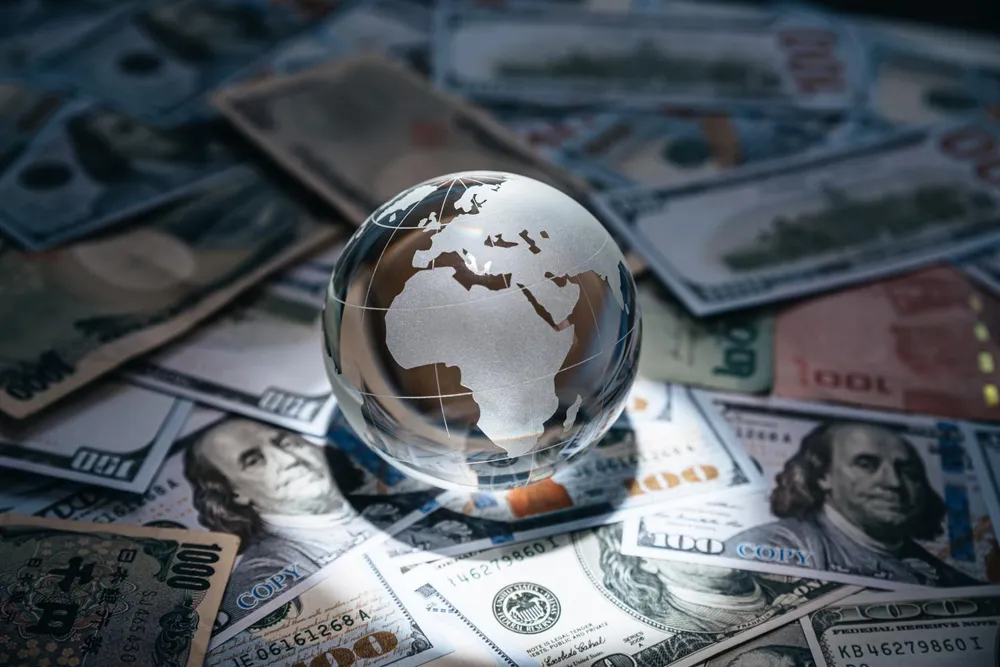
Dr. LỰC emphasized that the conditions for attracting FDI from the US have never been more promising, characterized by mutual trust, enhanced diplomatic relations, and substantial high-level commitments from both sides. Additionally, there is a notable surge in interest among American investors towards Vietnam.
JOURNALIST: - Sir, at the Vietnam Business Forum (VBF) 2024 in Hanoi, the US delegation came with a robust team of over 50 major businesses. As someone who participated directly in the event, could you shed some light on their level of interest in the Vietnamese market?
DR. CẤN VĂN LỰC: - I had the privilege to engage in open discussions with representatives of the US business delegation present at the VBF 2024 event. Notably, Mr. Ted Osius, President and General Director of the US-ASEAN Business Council (USABC), who also served as the US Ambassador to Vietnam, led a delegation comprising 52 US businesses to Vietnam for the forum. During our conversations, American business representatives expressed keen interest in the prospects for market recovery in Vietnam, as well as the overall trajectory of the Vietnamese economy for the current year.
In response to their inquiries, I conveyed that while only 32% of surveyed businesses anticipated an improvement in the Vietnamese economy in the fourth quarter of 2023, this figure had risen to 40% by the first quarter of 2024. Furthermore, both domestic and foreign businesses alike, comprising 40% of the surveyed pool, expressed optimism regarding the future prospects of Vietnam's economy.
- But why hasn't any American company made it onto the list of countries and territories with the largest FDI investment capital in Vietnam, sir?
- Not only you, but even American businesses attending the VBF 2024 event that day expressed surprise and raised the same question to me. They were puzzled as to why the United States was absent from the list of countries making the largest FDI investments in Vietnam. In response, I pointed out that the solution lies within their reach.
During discussions with Mr. Ted Osius, I expressed my hope that each of the 52 American businesses attending the VBF 2024 event in Vietnam would consider investing between USD 500 million to USD 1 billion upon returning home. If realized, Vietnam would immediately receive FDI investments ranging from USD 25 to 52 billion, a significant and impactful figure. Naturally, with such substantial investments, the United States would swiftly emerge as the largest FDI investor in Vietnam. However, achieving this requires determination from both sides. Vietnam must enhance its investment environment to genuinely attract American businesses.
- Sir, how do you assess the prospects of FDI capital flows from the US into Vietnam in the coming time?
- I believe the outlook for FDI capital flows from US businesses into Vietnam remains quite promising, driven by three main factors. Firstly, the bilateral relationship between Vietnam and the US is currently at an all-time high. Both countries have officially elevated their bilateral ties to a Comprehensive Strategic Partnership, fostering a conducive environment for increased economic cooperation.
Secondly, the prospects for Vietnam's economic growth in the immediate, as well as the medium and long term, are viewed positively by international organizations. Economic growth for 2024 is forecasted to range between 6% to 6.5%, indicating a favorable environment for investment and business expansion.
Thirdly, Vietnam's political environment remains stable, with ongoing attention and improvements to institutions and the business investment climate by the National Assembly and the Government. Despite the adoption of the global minimum tax policy of 15%, in line with many other countries, Vietnam is also developing a separate policy package tailored to support FDI enterprises affected by foreign investment flows. This tax policy is highly anticipated and appreciated by FDI enterprises operating in Vietnam.
In addition to the aforementioned reasons, Vietnam boasts several other advantages that contribute to its attractiveness for FDI. One such advantage is its relatively low labor costs, which, although having increased in recent years, remain at a moderate level that FDI enterprises find acceptable. In fact, these labor costs are often deemed more attractive than those in countries such as China, Thailand, and others in the region.
Furthermore, Vietnam has inked numerous free trade agreements (FTAs), a factor that greatly interests foreign investors, including those from the United States. These FTAs offer preferential trade terms and market access, enhancing Vietnam's appeal as an investment destination for American businesses and other international investors.
- As you mentioned, to attract high-quality FDI from the US, Vietnam needs to implement robust policies. Could you elaborate on what these policies entail, sir?
- I believe there are four key areas that Vietnam needs to address. Firstly, it involves enhancing institutional frameworks, policies, and legal frameworks for business investment. The government must prioritize institutional improvements, particularly by strengthening the investment and business environment. This includes the effective implementation of Resolution 01, aimed at enhancing the business environment and increasing competitiveness. We must prioritize the quality of institutions and ensure the fulfillment of commitments made to foreign investors to instill confidence and attract their investments.
Secondly, Vietnam needs to address infrastructure issues by ensuring synchronization in development. This entails further enhancing infrastructure in airports, ports, warehouses, industrial parks, and export processing zones to facilitate smooth operations for businesses.
Thirdly, the country must focus on developing high-quality human resources. This involves investing in education and training programs to nurture a skilled workforce capable of meeting the demands of modern industries.
Ultimately, effective policy coordination is essential to swiftly and effectively resolve the remaining challenges. By aligning policies and strategies across various sectors, Vietnam can create a conducive environment for attracting high-quality FDI from the United States and other international investors.
- Thank you very much.




















